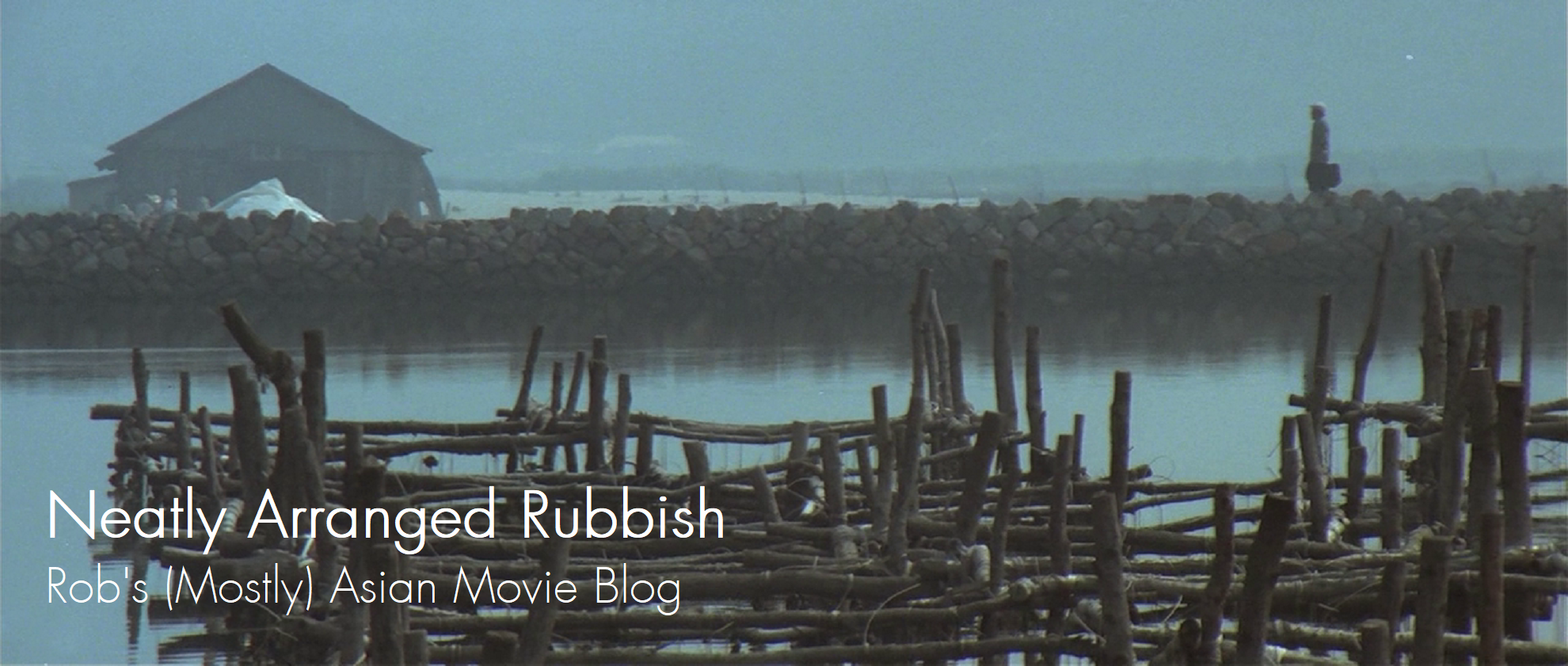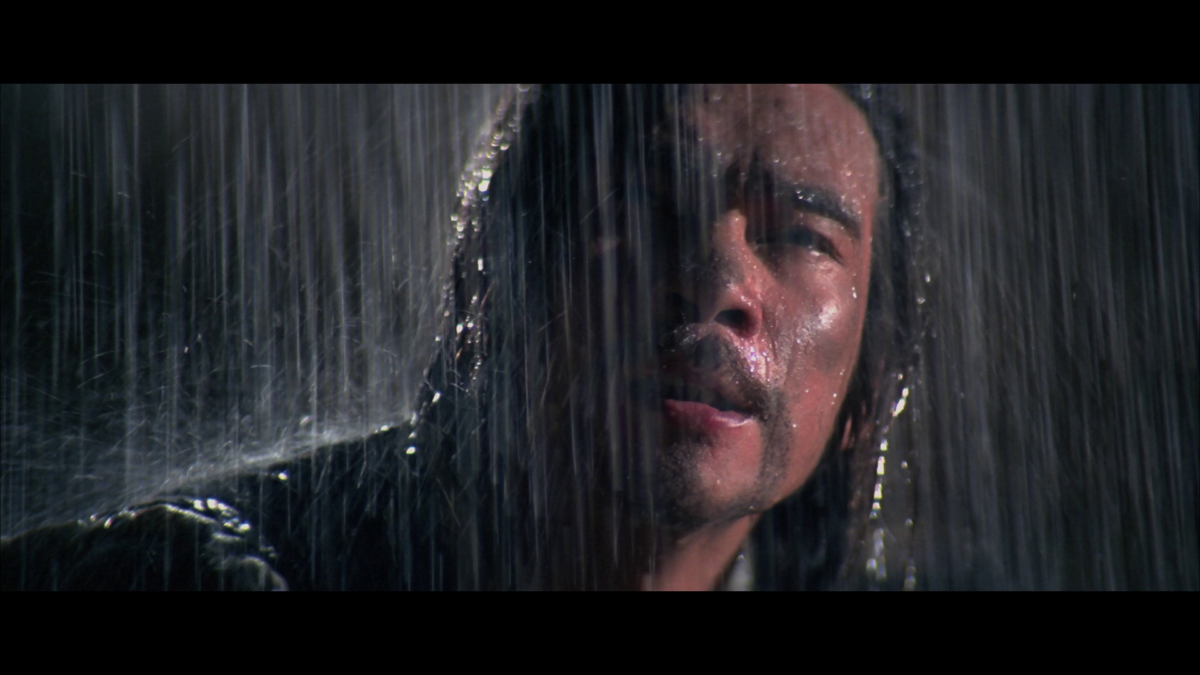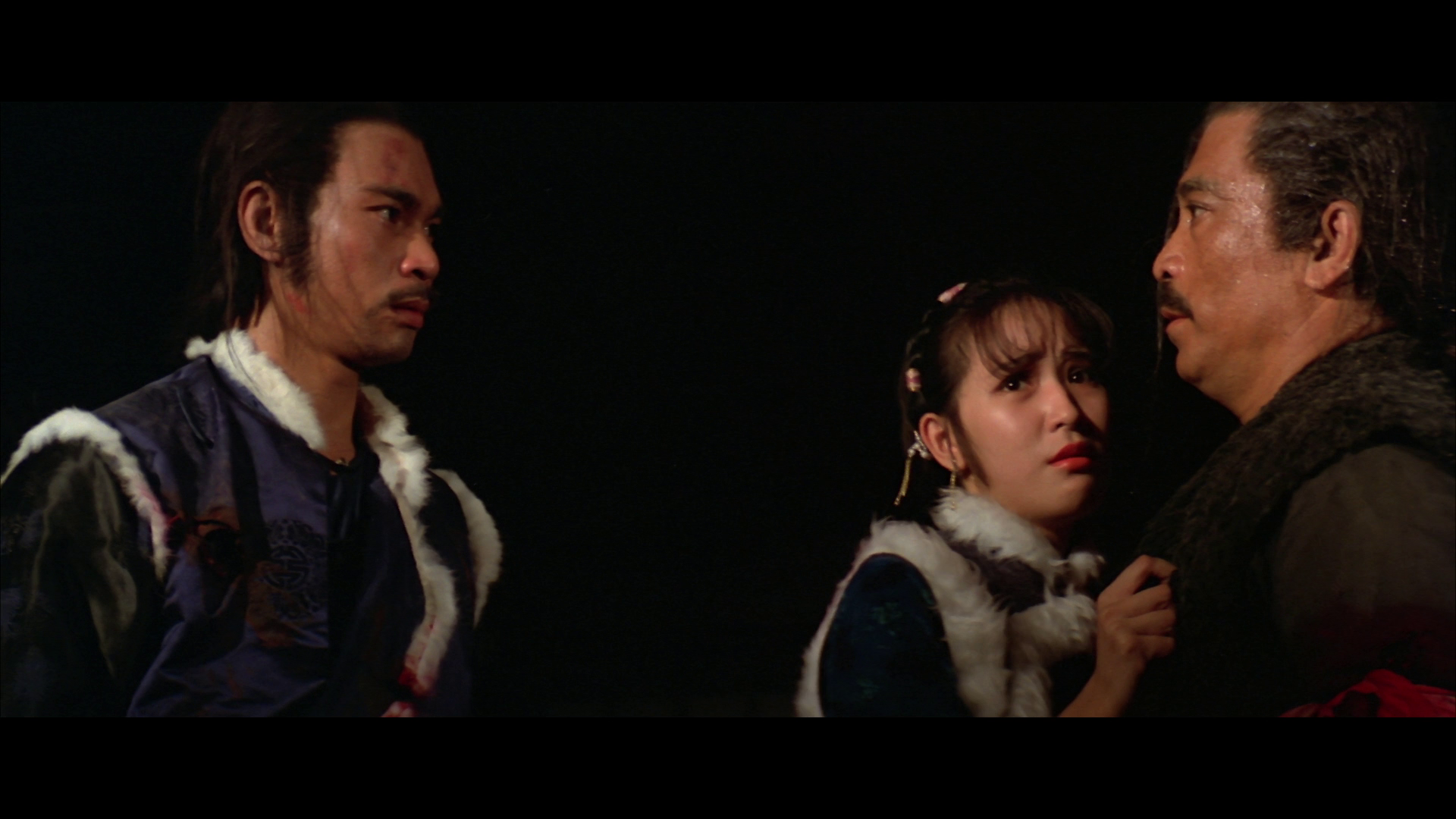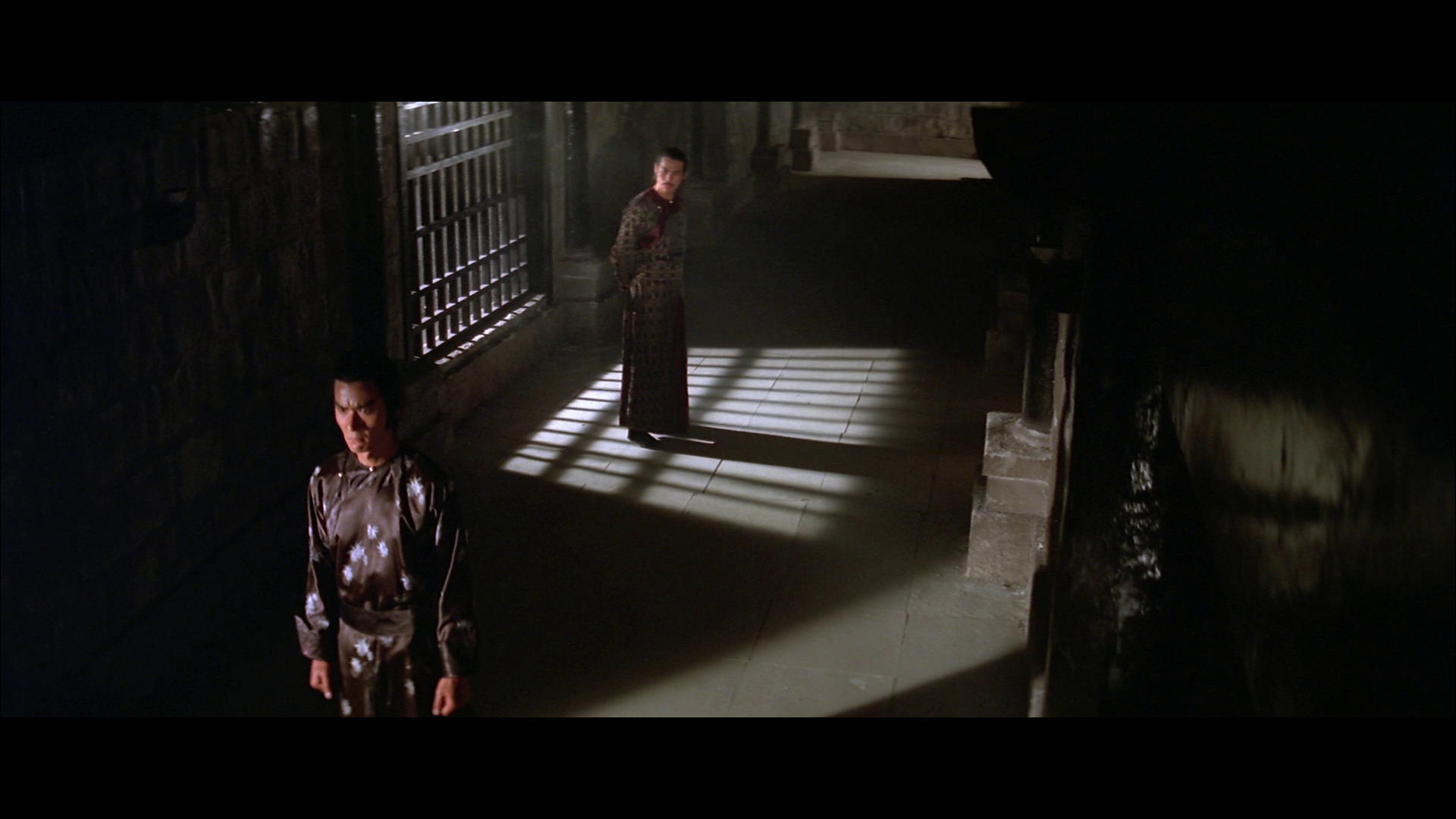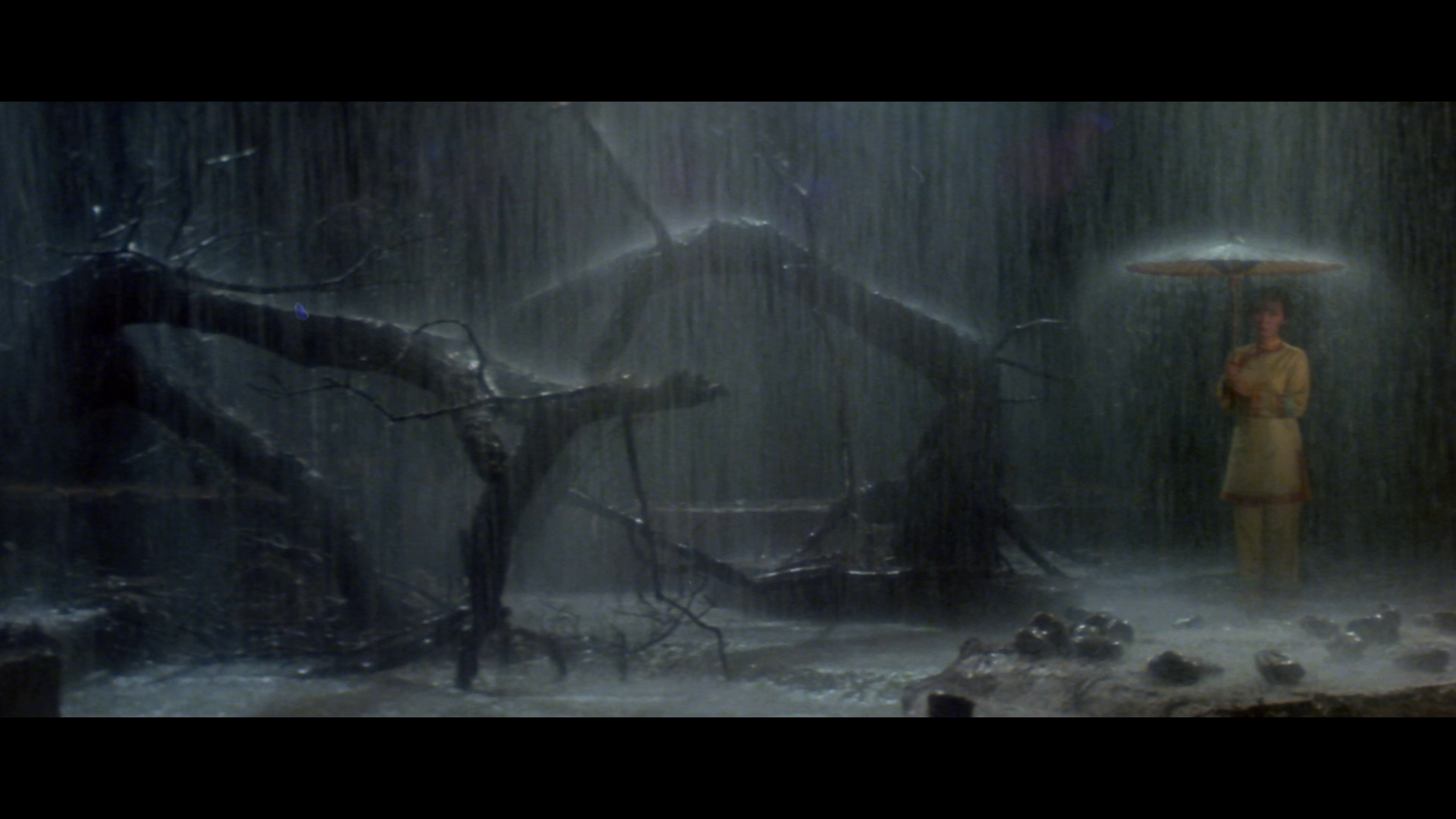Last Updated on April 19, 2021 by rob
In 19th century China a massive gold robbery at the court of the Manchurian Empress sends a squad headed by Constable Leng (Chen Kuan-tai) – a man with a well earned reputation for unsparing brutality when it comes to dealing with lawbreakers – on a hunt for the culprits, members of the despised Han minority. But the villains, led by Fang (Feng Ku), prove more formidable and cunning than expected and as Leng’s men are steadily cut down he has to contend with both an assassin (Jason Pai Piao) hired to kill him and the revelation that the real mastermind behind the robbery is none other than the Manchurian security chief who hired him.
A bloodthirsty Shaw Bros entry with a clever script by On Szeto (Big Bad Sis) that at first looks like a morality play with Kuan-tai’s remorseless killer constable chided by his brothers for indiscriminately killing unarmed criminals when they could just as easily be taken prisoner. But as the hunt for the gold robbers gets underway one after another of Leng’s squad die horrible deaths. Just as it seems that Leng’s brutal methods were right all along, our hero discovers who the actual ringleader of the gold robbers is and with it the realisation that he’s been the unwitting enforcer of a corrupt system that’s left the despised Han minority no choice but to turn to crime to protect their families. So there’s a race/class war aspect to this film that’s intriguingly handled, indeed not at all apparent at first.
In part that’s because the villains are so incredibly vicious it takes a while for us to realise they’re only this way because they’ve been treated like animals. That implicit empathy for the Han crops up throughout the film in different ways but is most obvious in the increasingly sympathetic portrait of Ku Feng’s villain tending to his blind daughter. As for Chen Kuan-tai, he’s a handsome and imposing lead and really dynamic in the fight scenes but for all that the film has a weakness that I think holds it back from the first rank of Shaw films and that’s our lack of an emotional connection with any of the characters. Aside from hints that Leng is troubled at the kill crazy accusations levelled at him by his compatriots he’s otherwise far too formidable a swordsman – and too formal with both his fellow officers and even his own brother – for us to care all that much about him.
That weakness aside – and it is a big one given the bleak worldview on offer – the film really delivers with a fast pace, a decent plot and plenty of action. There’s lots of gory, well done swordplay using a mixture of location work and a succession of increasingly atmospheric studio sets beautifully lit by ace cinematographer Li Hsin Yeh. I particularly liked the scene where Leng is confronted over his murderous behaviour by a fellow constable as Hsin Yeh’s lighting contrives to have Leng framed within the shadows cast by the jail bars of a nearby cell. It’s a neat touch and entirely appropriate given the revelations to come.
The staging of a sequence in which Leng’s brother is killed by enemy archers on a denuded forest set complete with torrential rain and swirling mist has a distinctly Japanese Samurai feel to it that feels atypical for a Shaw entry and yet entirely appropriate for the feudal world depicted here. There’s also some really effective impressionistic touches. When Leng kneels next to the corpse of his brother in a mist shrouded valley the rain comes pouring down, an effect that in a literal sense wipes away the mist surrounding him but on a symbolic level clears away the fog in his own mind, transforming him from an unwitting figure of oppression into one of righteous justice.
What then follows is the best fight sequence in the film, a thrilling and rousing battle as Leng takes on his boss, bodyguard and dozens of his troops in a 20 minute long slaughterfest at the Manchurian court. The sheer inventiveness of the staging here – at one point Leng deliberately impales himself on his adversary’s sword to block him from causing any more damage with it! – is thrilling stuff and the film ends with a poignant shot harking back to a solemn promise made to a dying Fang which suggests that for the persecuted Han – here represented by Fang’s blind and helpless daughter – nothing has changed. This may not be one of the great Shaw films but I’ll tell you something – it’s a damn good one.
